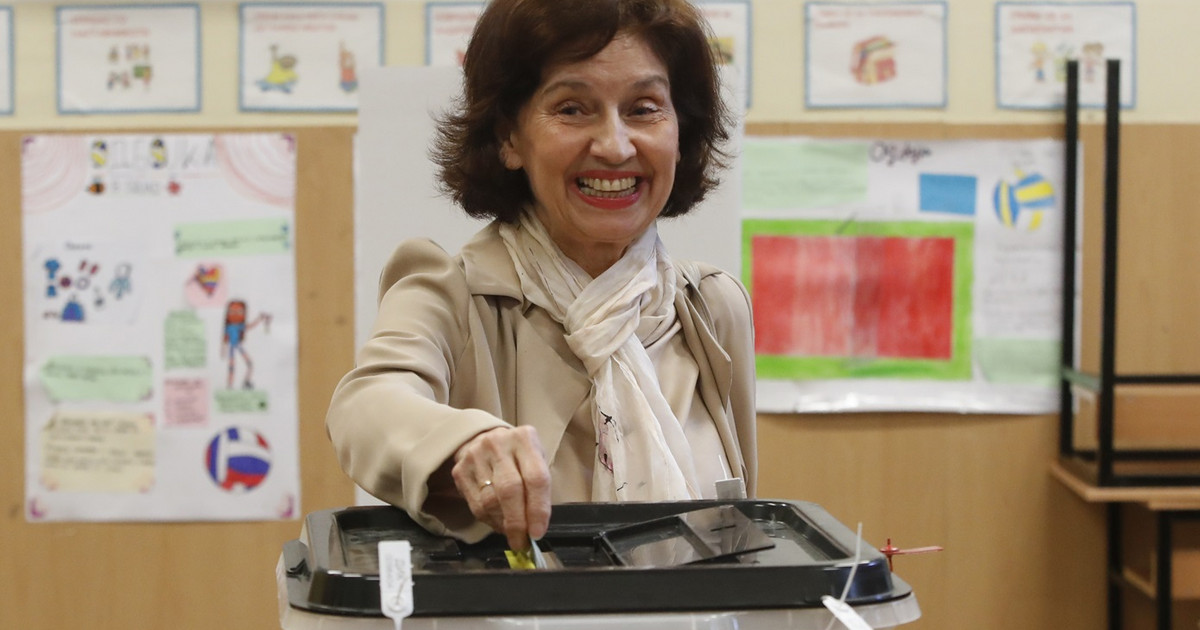This Wednesday (10) was the big day of the COP26 climate summit, with the first draft of a comprehensive agreement launched. The draft is a kind of wish list prepared by the COP presidency and its final version will be negotiated between national delegates in the next two days.
Depending on who you ask, it’s either “ambitious” or “a total failure”. The US and China also made a surprise pledge to work together to tackle the climate crisis.
Here’s what happened on Wednesday:
China-US surprise
The US and China announced an agreement on Wednesday (10) to intensify their climate cooperation ambitions, just days before the end of the conference.
“There is more agreement between the US and China than disagreement, making it an area of enormous potential for cooperation,” China’s climate envoy Xie Zhenhua told a news conference.
“The release of this joint statement shows once again that cooperation is the only choice for China and the United States. Working together, our two countries can achieve many important things that are beneficial not just for both countries, but for the world as a whole.”
At a press conference immediately after Xie’s, US special climate envoy John Kerry said he was “satisfied” with the agreement between the two countries.
Kerry said the US and China have two options: they can leave COP26 without working together and leave “the world wondering where the future will be, clearly with a gap… Or, we can leave here with people working together to increase ambition and start on a better path,” Kerry said. “That’s really the choice.”
1.5 commitment with little support
The draft agreement includes the strongest language ever about the need to limit global warming to 1.5 degrees Celsius, which would be a victory for the COP26 presidency as some of the world’s biggest polluters were even recently reluctant to commit to the goal.
While analysts liked the language, many were quick to point out that the rest of the deal falls short.
Mark Maslin, a climate scientist at University College London, told CNN that the project was “a bit bland”.
“He recognizes that there is a huge need to cut emissions as quickly as possible by 2030 to be on the 1.5 degree temperature target.
However, later in the document, it asks countries to come up with new kinds of promises, targets that are all in line with keeping temperatures below two degrees. Therefore, the beginning and end of the document itself do not coincide,” he said.
Fossil fuel subsidies are mentioned
The draft agreement also calls on governments to “accelerate the elimination of coal and fossil fuel subsidies.” This is an important first time, as so far, no COP agreement has specifically mentioned fossil fuels.
“It’s absurd that we’re still paying taxpayers’ money in the hundreds of billions of dollars a year to encourage the production and consumption of fossil fuels,” said Alden Meyer, senior associate at E3G.
“The first rule with holes is that when you find yourself in a hole, stop digging. And we’re still digging deeper by paying people to pollute and produce and use more carbon,” Meyer said. “It’s insane.”
But there is no guarantee that the language around coal and fossil fuel subsidies will survive the next two days of negotiations.
Meyer said he hopes there will be “a bit of a fight” over this before a final text is agreed.
“Saudi Arabia and other countries will come in and try to remove this paragraph,” said Jennifer Morgan, executive director of Greenpeace International.
Johnson begs delegates
UK Prime Minister Boris Johnson is back in Glasgow after spending the past week in London, trying to brush his party’s latest political scandal off the front pages.
Johnson acknowledged that climate talks are getting more difficult as delegations reach a final agreement.
“Now is the time for everyone to come together and show the determination needed to overcome the roadblocks,” Johnson said in a speech at the conference.
“Here in Glasgow, the world is closer than ever to signaling the beginning of the end of anthropogenic climate change,” he said, calling delegates: “Will you help us do this? Are you on the way? ”
Saudi Arabia backs off
Saudi Arabia is shaping up to be a major hurdle on the way to a substantial deal and the UK is desperately trying to bring the “kingdom on board”.
Downing Street said Johnson spoke with Saudi Crown Prince Mohammed bin Salman on Wednesday and that the two “discussed the importance of advancing negotiations in the final days of COP26.”
In a speech, Saudi Arabia’s energy minister urged the world to stop showing prejudice in favor of or against specific forms of energy.
“It is imperative that we recognize the diversity of climate solutions and the importance of reducing emissions as stipulated in the Paris Agreement, without any bias in favor of or against any particular energy source,” said Energy Minister Prince Abdulaziz bin Salman Al Health
Several experts familiar with the talks said openly last week that the UK is blocking language progress around fossil fuels and 1.5 degrees. Saudi authorities did not respond to the request of the CNN to comment on the issues.
Jennifer Tollmann, senior policy adviser at E3G, said the next 48 hours will be crucial and will show “whether ministers work together to dramatically increase ambition in all sectors or give Russia, Saudi Arabia and Brazil a victory and miss any chance. signals that all countries will have to come back with more ambition in this decade.”
Car offer disappoints
Some of the biggest players in the auto industry poured cold water on the idea that COP26 could be the beginning of the end of the combustion engine era.
According to a statement published on Wednesday, the UK COP26 presidency wanted governments, manufacturers and investors to pledge “to work towards zero emission of all new car and van sales worldwide by 2040, and no later than 2035 in key markets.”
But the proposal was not signed by several important countries and companies.
Germany, China, Japan, South Korea and the United States did not sign the declaration. Toyota, Volkswagen, BMW and Nissan also abstained from signing.
German Environment Minister Jochen Flasbarth said on Wednesday that Germany and other states “could have signed” the declaration had the UK presidency not put up an “unnecessary barrier”, referring to the fact that the agreement did not take into account synthetic fuels.
Still, there were some notable signatories. Ford and General Motors agreed, as did Jaguar Land Rover, Mercedes-Benz and Volvo. Among the US cities, states and cities that applied were the UK, Canada, Poland, Kenya, India, Australia’s Capital Territory, Catalonia, Atlanta, San Diego, New York, San Francisco and Seoul.
financial gap
The gap between the “rich and the poor” is growing and the COP26 draft agreement is not doing enough to tackle the crisis, said the director of the UN Office for the Coordination of Humanitarian Affairs Hansjoerg Strohmeyer on Wednesday .
“We already have low levels of funding for the most vulnerable. We have a humanitarian assistance system that is at its limit. And in the current growth in the trajectory of global warming, the need will grow, these are the most vulnerable”, he stated.
The draft agreement showcases some strengths in a long section on the need to deliver $100 billion a year in climate finance to the developing world, a pledge made by the world’s richest countries more than a decade ago.
“It’s confusing and vague. The missed deadline for the $100 billion pledge is not recognized – and this is an important question for vulnerable countries,” said Mohamed Adow, director of climate think tank Power Shift Africa.
Walé Azeez and Chris Liakos, yes CNN, in London, contributed to the report.
(Text translated, read original in English here)
Reference: CNN Brasil
I’m James Harper, a highly experienced and accomplished news writer for World Stock Market. I have been writing in the Politics section of the website for over five years, providing readers with up-to-date and insightful information about current events in politics. My work is widely read and respected by many industry professionals as well as laymen.






